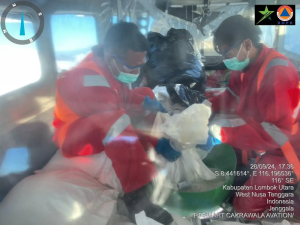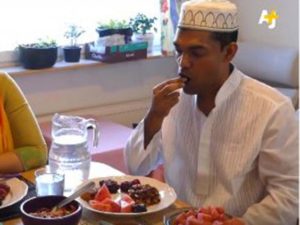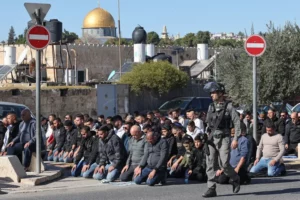
Mohammed has explained how Muslims in Arctic Circle countries adapt to little or no sunset during Ramadan.
Lpland, 3 Ramadan 1438/29 May 2017 (MINA) – The holy month of Ramadan is now underway, with Muslims fasting from dawn to dusk to observe the period. But what happens when you live in a country where the sun never, or scarcely, sets?
Also Read: US National Education Association Passes Resolution to Ban Pro-Israel Curriculum in Schools
Muslims living in the Arctic Circle are experiencing some of the most challenging conditions for Ramadan as they can experience 24 hours of sunlight, independent.co.uk reported.
People observing it will not consume food or drink, smoke or engage in any sexual activity, from when the sun rises until sundown again. Fasting ends with a meal known as the Iftar.
Around 22 per cent of the world’s population, or 1.6 billion people, are expected to join in the holy observance around the world.
Areas including Lapland, Finland and Sweden can experience little or no sundown during the summer months. A family have shared their experiences of how they experience Ramadan in northern Finland where the sun sets for just 55 minutes.
Also Read: Macron Urges Joint France-UK Recognition of Palestinian State
“So when they heard from us we do Ramadan here for 23 hours or 22 and a half hours, they just say ‘That’s unbelievable, how could you manage this.’ But somehow [thank God] we manage it, and we’re doing very well.”
He said other Muslims in nearby countries with similar sunlight conditions had found other ways of adapting, adding: “Some other Muslims who live in Lapland, most of them follow the Middle East time table, as they follow the nearest Islamic country, Turkey.”
Depending on a person’s location, Ramadan for people living in the UK can last between 16 and 19 hours a day.
The times and dates of Ramadan and fasting vary each year in relation to the Western calendar as they are determined by the lunar cyc (T/RS5/RS1)
Also Read: Heat Wave Across Europe Causes 2,300 Deaths, Study Finds
Mi’raj Islamic News Agency (MINA)































 Mina Indonesia
Mina Indonesia Mina Arabic
Mina Arabic